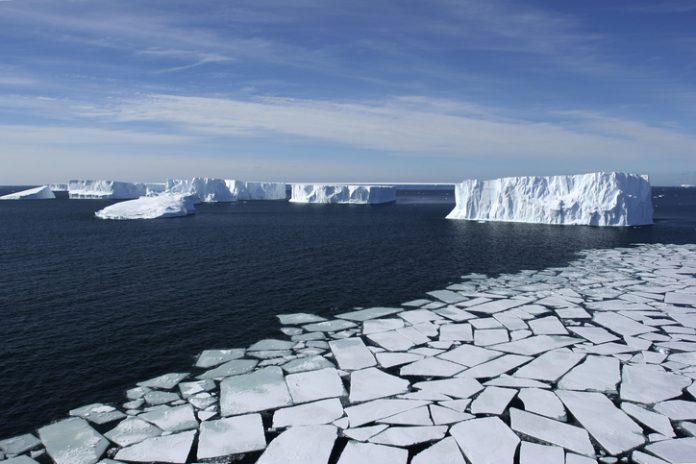Researchers have revealed alarming findings about the rapid disappearance of meteorites from the Antarctic ice sheet due to global warming
Led by Harry Zekollari and Veronica Tollenaar, a team of experts from Switzerland and Belgium used a combination of artificial intelligence, satellite observations, and climate model projections to estimate the impact of rising temperatures on these extraterrestrial fragments.
Meteorites vanishing from Antarctica ice sheets
The study reveals an alarming trend, for every tenth of a degree increase in global air temperature, approximately 9,000 meteorites vanish from the surface of Antarctica’s ice sheet. This loss has deep implications for scientific research, as meteorites serve as valuable time capsules from space, offering insights into our solar system’s history, including the origins of life on Earth and the formation of celestial bodies like the Moon.
Antarctica hosts between 300,000 to 800,000 meteorites, making it a hotspot for scientific discovery. However, by 2050, around a quarter of these meteorites could be lost due to glacial melt, with projections indicating a potential loss of up to three-quarters by the end of the century under high-warming scenarios.
Harry Zekollari, now an Associate Professor of Glaciology, emphasises the urgent need for international collaboration to salvage these celestial treasures. “We need to accelerate and intensify efforts to recover Antarctic meteorites” Zekollari asserts. “The loss of Antarctic meteorites is much like the loss of data that scientists glean from ice cores collected from vanishing glaciers.”
Ice melting affecting meteorite detection
Meteorites, distinguished by their dark crust, accumulate in concentrated “stranding zones” on the ice sheet, where their visibility helps in detection. However, as temperatures rise, these dark meteorites absorb more heat from the sun, warming the surrounding ice and causing localised melting.
Once submerged, these meteorites become virtually undetectable, posing a significant challenge to recovery efforts.
Veronica Tollenaar elaborates on this phenomenon: “Even when temperatures of the ice are well below zero, the dark meteorites warm up so much in the sun that they can melt the ice directly beneath the meteorite.”
According to researchers, the solution lies in immediate action to mitigate climate change. By reducing greenhouse gas emissions, we can slow the pace of the Antarctic ice melt and preserve the remaining meteorites for scientific study. Scientists propose employing data-driven strategies to pinpoint unexplored meteorite stranding zones and optimise recovery missions.














